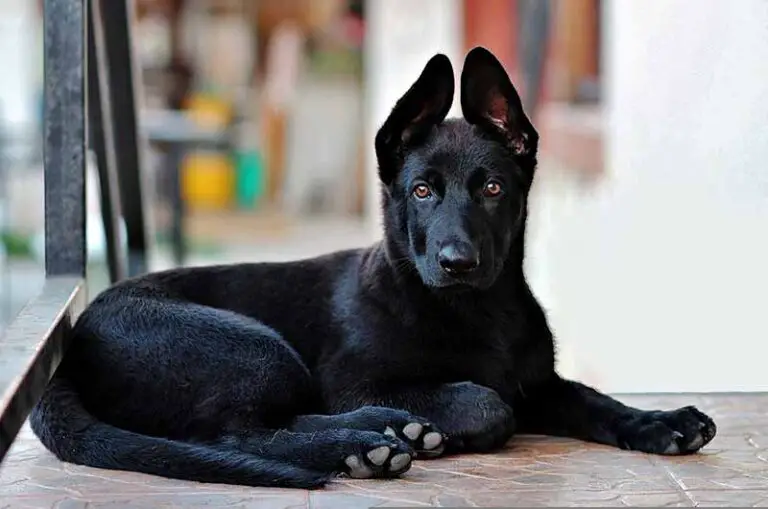Why Is My Dog Suddenly Sleeping In A Different Room?
You wake up in the middle of the night and don’t see your little furry friend. After a quick search, you find your dog peacefully sleeping in another room. Then you feel sad because you long for him to be with you. You believe you did something to hurt your dog.
All you can think about now is, “why is my dog suddenly sleeping in a different room?” There could be numerous causes for this type of behavior, including something as simple as your room not being the appropriate temperature for him to sleep in. He might find it too cold. Another reason could be that he is stressed.
So, let us go through them one at a time to figure out the exact reason why your dog is suddenly sleeping in a different room.
Why Is My Dog Suddenly Sleeping In A Different Room?
- Your dog simply enjoys the ambiance in the other room
One of the reasons that can be attributed to your dog suddenly sleeping in a different room is that he enjoys the ambiance.
For example, your dog may enjoy the space because of the lighting or the smell of new sheets.
- Your dog is not at ease in your room
It’s also possible that he prefers the comfort of the other room. Your dogs may prefer large areas, and the other room is enormous.
It could also be that he likes warmer temperatures, and your room is cold than the one in which he sleeps.
- Your dog believes you dislike him sleeping in your room
Your dog might also believe you want him to sleep in the other room. It would be almost inevitable if he had always slept in a separate room when he was first brought to the house.
And if you have done something rewarding when he sleeps there, he may want to repeat it because he sees it as a desired outcome.
- Your dog is a newcomer to your room
If you recently adopted your dog, they may be isolated and not yet prepared to accept you. It is another factor we may overlook when determining why your dog is suddenly sleeping in a different room.
It could be because your dog sees your room as an unknown territory and needs time to adjust.
- Your dog is distracted by other noises
You are aware of how sensitive a dog’s hearing is. They can hear sounds four times better than humans can.
They become easily distracted as a result, and it could be that noise in your room that is what causes them to keep moving to another room to sleep. Perhaps an alarm clock or the sound of a fan.
- Your dog detects a change in your room
Dogs have an exceptional sense of smell in addition to superior hearing. They are better at detecting 10,000–100,000 different scents than humans.
So, while it may not be evident to you, even the slightest change in your room can affect how your dog perceives the entire thing.
Maybe you painted the walls or got a new air freshener, and the smell bothers him. It could be another pet you have in your room, or your partner could be with you sleeping on your bed.
These are only one or two reasons your dog suddenly sleeps in a different room. If you give him and his behavioral change a bit more attention, your dog himself will tell you what is wrong.
Why Is My Dog Suddenly Sleeping Downstairs?
Now you know why your dog suddenly sleeps in a different room. But what if it’s downstairs all the time, all alone by himself? Here are some plausible explanations for your dog suddenly sleeping downstairs!
- It is due to the temperature differences
According to one study, the standard temperature for dogs who aren’t used to the cold should not be under 10°C (50°F). The temperature should not exceed 29.5°C (85°F) for those who get warm quickly.
Additionally, downstairs rooms are typically much warmer than upstairs ones. Therefore, even though your dog prefers to be in your room when he is feeling hot, he might not do so when he is feeling cold. He might also prefer to be downstairs if he has short hair to stay warm.
- It’s because your dog is trying to protect you
It indicates that he is protecting you, which is especially true if he sleeps downstairs because he might be merely trying to keep an eye on you while you are sleeping.
When you are sick or if a new person moves in next door, you may notice these kinds of behaviors.
By staying downstairs, your dog will be prepared for emergencies, and nothing will be wrong with him, so don’t worry.
- It is due to age-related health problems
Your dog may be too old to go upstairs. Dogs, like humans, develop arthritis-related joint swellings and poor eyesight as they age.
So, he’d rather be downstairs than go through the trouble of getting to your upstairs room.
How To Get Your Dog To Stop Sleeping In A Different Room?
Here are some things you can do to stop your dog from suddenly sleeping in a different room.
- Try rewarding your dog for displaying desired behaviors through positive reinforcement training. Ask your dog to spend the day sleeping in your room, and then give him a treat. Repeat the process by asking him to sleep at night and rewarding him for it.
- Avoid using negative reinforcement training, which involves introducing unpleasant stimuli to encourage behaviors. For example, hitting him to make him sleep in your room/upstairs is not a good idea. Then he will always sleep in a different room to stay away from you.
- Create a comfortable environment for your dog by ensuring that the room’s lighting, ventilation, and temperatures align with his preferences. For example, if you believe your room is too cold for him, try using a heater.
- Make a separate sleeping area for your dog in your room – this is another common issue that makes the dog suddenly sleep in a different room. Make sure the space is large enough because dogs, even when they are with you, like to be independent.
Thank you for reading this post. I hope you found this article is useful. Stay tuned with Jack Russell Owner for more interesting posts.








